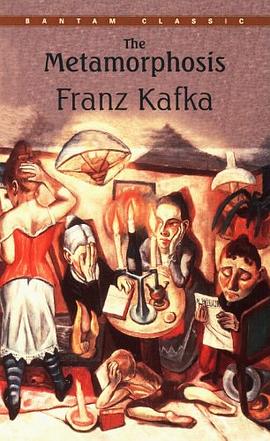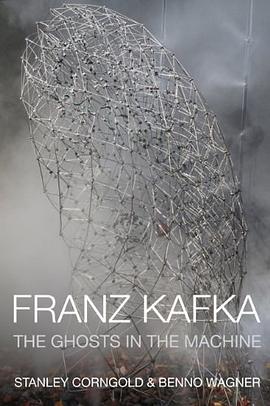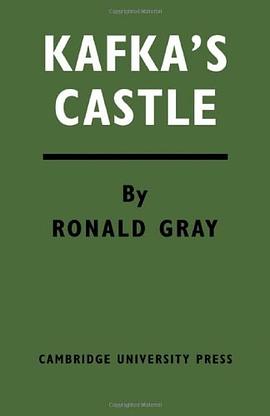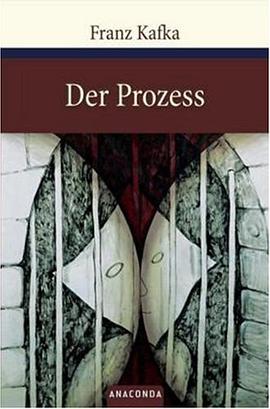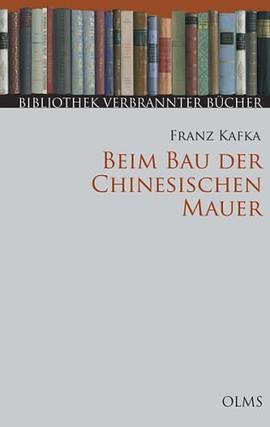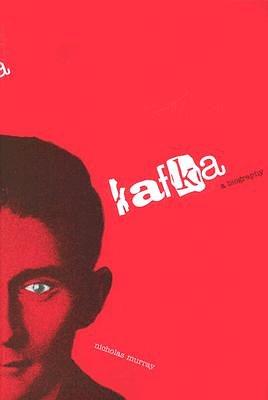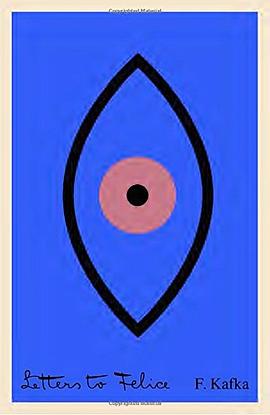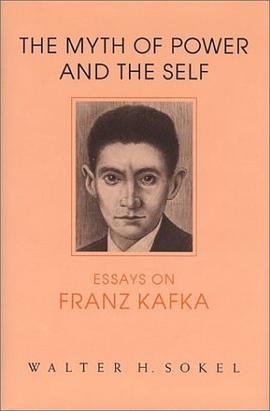

具体描述
在线阅读本书
Book Description
Arriving in a village to take up the position of land surveyor for the mysterious lord of a castle, the character known as K. finds himself in a bitter and baffling struggle to contact his new employer and go about his duties. As the villagers and the Castle officials block his efforts at every turn, K.’s consuming quest–quite possibly a self-imposed one–to penetrate the inaccessible heart of the Castle and take its measure is repeatedly frustrated. Kafka once suggested that the would-be surveyor in The Castle is driven by a wish “to get clear about ultimate things,” an unrealizable desire that provided the driving force behind all of Kafka’s dazzlingly uncanny fictions.
Translated by Willa and Edwin Muir
Amazon.com
They are perhaps the most famous literary instructions never followed: "Dearest Max, my last request: Everything I leave behind me ... in the way of diaries, manuscripts, letters (my own and others'), sketches, and so on, [is] to be burned unread...." Thankfully, Max Brod did not honor his friend Franz Kafka's final wishes. Instead, he did everything within his power to ensure that Kafka's work would find publication--including making some sweeping changes in the original texts. Until recently, the world has known only Brod's version of Kafka, with its altered punctuation, word order, and chapter divisions. Restoring much of what had previously been expunged, as well as the fluid, oral quality of Kafka's original German, Mark Harman's new translation of The Castle is a major literary event.
One of three unfinished novels left after Kafka's death, The Castle is in many ways the writer's most enduring and influential work. In Harman's muscular translation, Kafka's text seems more modern than ever, the words tumbling over one another, the sentences separated only by commas. Harman's version also ends the same way as Kafka's original manuscript--that is, in mid-sentence: "She held out her trembling hand to K. and had him sit down beside her, she spoke with great difficulty, it was difficult to understand her, but what she said--." For anyone used to reading Kafka in his artificially complete form, the effect is extraordinary; it is as if Kafka himself had just stepped from the room, leaving behind him a work whose resolution is the more haunting for being forever out of reach.
From Library Journal
Upon his death in 1924, Kafka instructed his literary executor, Max Brod, to destroy all his manuscripts. Wisely refusing his friend's last wishes, Brod edited the uncompleted Castle, along with other unfinished works, ordering the fragments into a coherent whole, and had them published. Brod's interpretation of the work as a novel of personal salvation was accepted and strengthened by Willa and Edward Muir, who translated it into English in 1930. Recent scholarship, less willing to accept Brod's version, has led to a new critical edition of the novel, which was published in German in 1982 and which purports to be closer to Kafka's intentions. Harman's translation represents this edition's first appearance in English. Harman's stated goal as translator is to reproduce as closely as possible Kafka's style, which results in an English that is stranger and denser than the Muirs' elegant work. A necessary acquisition for anyone interested in Kafka.
Michael O'Pecko, Towson State Univ., Md.
About Author
The son of a well-to-do merchant, Franz Kafka was born in Prague in 1883 and died of tuberculosis in a sanitorium near Vienna in 1924. After earning a law degree in 1906, he worked most of his adult life at the Workers Accident Insurance Company for the Kingdom of Bohemia in Prague. Only a small portion of his writings were published during his lifetime; most of them, including the three unfinished novels, Amerika, The Trial, and The Castle, were published posthumously.
Mark Harman holds a Ph.D. from Yale University and has taught German and Irish literature at Oberlin and Dartmouth. In addition to writing scholarly essays on Kafka and other modern authors, he has edited and co-translated Robert Walser Rediscovered: Stories, Fairy-Tale Plays, and Critical Responses and has translated Soul of the Age: Selected Letters of Hermann Hesse, 1891-1962. He teaches literature at the University of Pennsylvania.
Book Dimension :
length: (cm)20.3 width:(cm)12.7
作者简介
卡夫卡(1883-1924),奥地利小说家,生前鲜为人知,其作品也未受到重视,身后却文名鹊起,蜚声世界文坛。他被称为“作家中之作家”。《城堡》是其最具特色、最重要的长篇小说。
目录信息
读后感
最近重读,当然还是没能读到最后,人物间没完没了的对话,已经不能称之为对话了,相互攻击比较贴切。记得早年看过一个关于《城堡》的评论,不记得是出自米兰昆德拉还是格非了,他说这个长篇不可能完成,如果一开始还有情节推进,那么到最后只有无尽的对谈,主人公几乎没有行动...
评分枣树 在我的后园,可以看到墙外有两个人,一个是K,另一个也是K。 平乐 这小镇有他们所觊觎的一切。 竹檐。 微雨。 木墙。 青石。 一群小孩子经过身边,他们的眼睛和手是那么小,他们的心也是那么小。 小到盛不了任何忧伤。 这小镇有他们所觊觎的一切。 默默无闻,...
评分整个九月我都在阅读这个小说。这是我读的第三篇卡夫卡的小说,第一篇为《一次斗争的描述》,阅读的结果以失败而告终,我完全被他的语言所击败。第二篇为《饥饿艺术家》,很好读,故事富有连贯性。第三篇则是这个长篇《城堡》。 我知道我迟早要接触这个现代派的源头,我花了...
用户评价
this vervison.
评分this vervison.
评分this vervison.
评分this vervison.
评分this vervison.
相关图书
本站所有内容均为互联网搜索引擎提供的公开搜索信息,本站不存储任何数据与内容,任何内容与数据均与本站无关,如有需要请联系相关搜索引擎包括但不限于百度,google,bing,sogou 等
© 2025 onlinetoolsland.com All Rights Reserved. 本本书屋 版权所有


